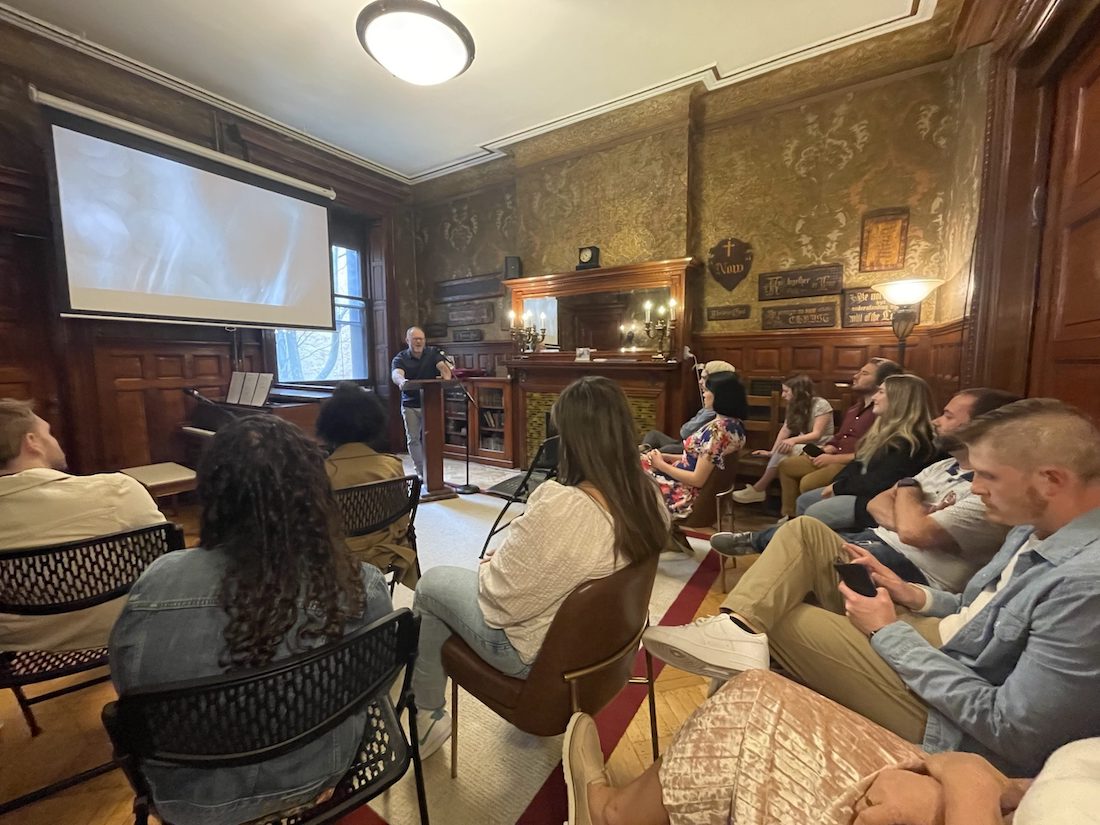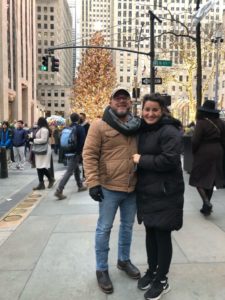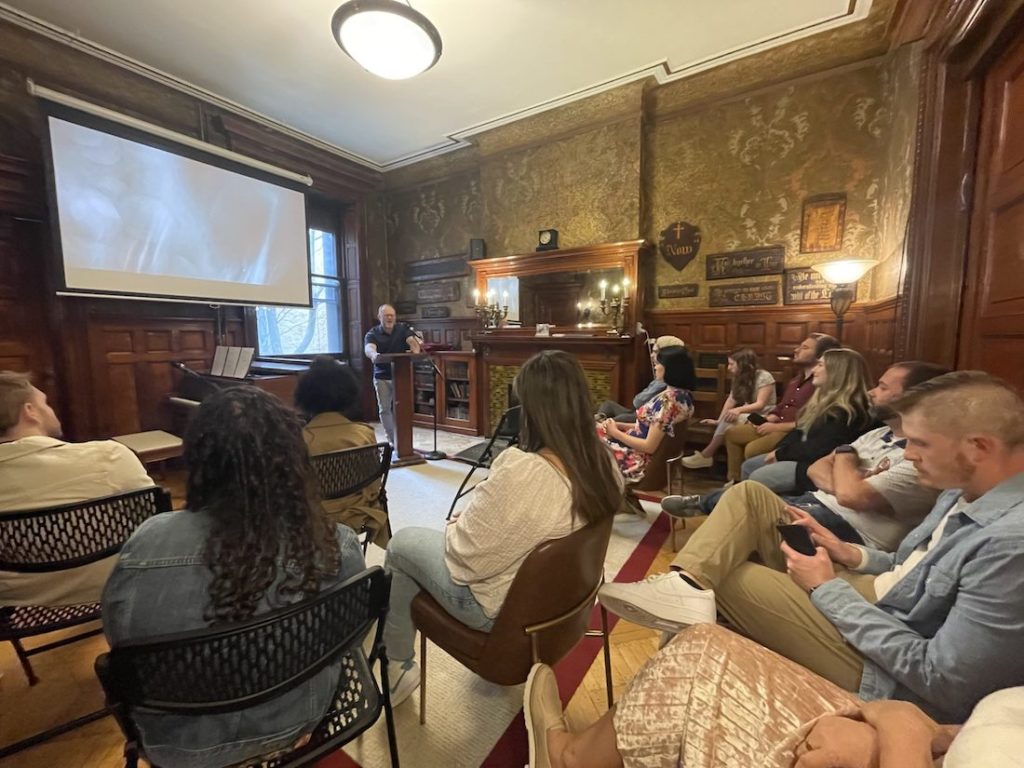Steve Chambers said when he and his wife, Toni, started taking their family on missions trips to the Bronx, they “fell in love with the city.”
Not too long afterward, his church — Calvary Baptist in Dothan — sent the couple to talk with church planters in New York City so Calvary could partner with one.
But as they interviewed planters, one thing became more and more clear.

“In the process of that week my wife and I both said, ‘Do you think God could be calling us to plant a church here?’ That was in early 2017,” said Chambers, who at the time was Calvary’s minister of worship.
They couldn’t shake the feeling. After praying about it, they started making plans to relocate.
An unexpected place
And they couldn’t shake something else either — the feeling that they were supposed to be in a specific neighborhood, one they didn’t expect.
“When we came up here and started walking through neighborhoods, the Upper West Side just kept sticking out for all the wrong reasons,” Chambers remembered. “It’s very expensive to live in, and it’s not inner-city like the Bronx.”
The people who live there are career focused, often waiting to start families till their 40s. It’s a very socially and politically liberal neighborhood, Chambers said, and people are skeptical of the church as an institution.
The couple knew it would be a difficult place to start a church, but they saw it as an opportunity.
“We wanted to do life right alongside people and plant our family in their lives first and foremost,” he explained. “The challenge for us is to live alongside them and demonstrate what it means to be a Christian.”
When they moved in they started having dinners in their apartment and inviting all their neighbors, then they would discuss spiritual things.
“We’ve had lots of people come, people who would not come to church,” Chambers recalled. “I’ll say, ‘OK, what kind of questions?’ And they will ask things from deconstruction to gender identity to sexuality.”
‘All about relationships’
The couple started with a small group in their apartment and grew to four small groups before they held their first church service. Sometimes planting a church can look like launching a business, but “that’s just not the way this neighborhood works,” Chambers said. “We’re all about relationships.”
He hasn’t had one person come to Neighborhood Church because of a flier, he noted, but as they got to know their neighbors, people grew to trust them and accepted an invitation.

“That’s how we do outreach,” Chambers said. “We’re Christians, and we try to equip people to live a Christian life so people will notice. A big thing of ours is 1 Peter 3:15 — to be ready to give an answer for the hope inside you when someone asks.”
The way they’re doing ministry is slow, he admitted.
“It is relational, and you have to build those relationships, build trust with people,” he explained. “If they think you’re trying to get them on your team, they don’t have any use for you.”
As North American Mission Board-sponsored GenSend students serve alongside them this summer, they’re taking a different approach than perhaps more standard outreach, Chambers said.
“In other neighborhoods you can hand out bottles of water or fliers for VBS. In our neighborhood, none of that flies. Once they hear you’re a Christian, they’re skeptical,” he said. “The kids who come and serve with us, I plug them into the community. We have some sport leagues here — I tell the students to join what is already happening in the city. There’s no need for us to clump up as a church. Go serve next to your atheist neighbor serving soup at the soup kitchen.”
Chambers said New York may seem different from Alabama, but people are growing more skeptical of institutionalized Christianity in the South too.
“There are many cultural barriers between the gospel and a lost person. The call for us is to figure out how we cross those cultural barriers,” Chambers said. “We are the church, the people. So let’s get out there and live that way.”
For more information visit neighborhoodchurchuws.com.
Editor’s Note: This story first appeared here in The Alabama Baptist.
Published July 1, 2022
